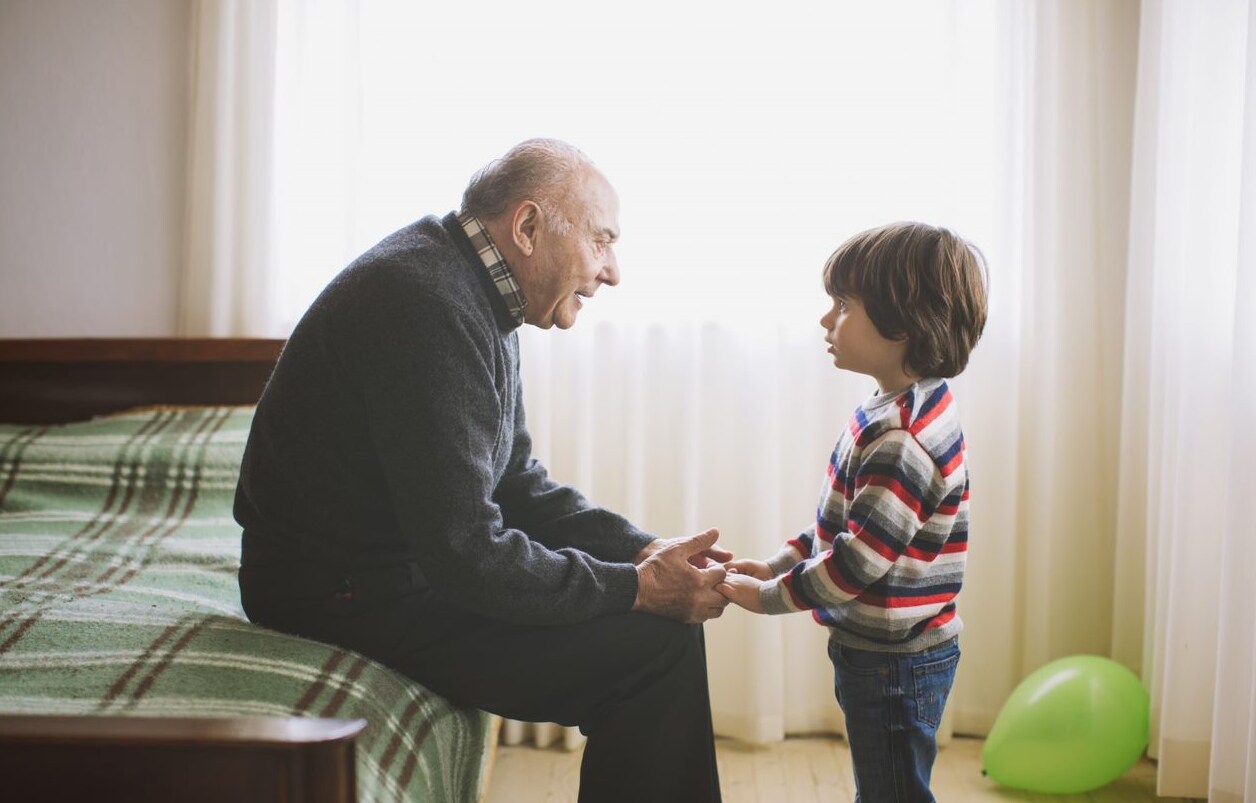“Mom, how come Grandma doesn’t remember my name? I keep repeating it, but she doesn’t recognize me.” For young children, it can be jarring when a grandparent shows signs of decline and suffers from dementia. It is especially difficult when Grandma looks the same physically, but slurs speech, exhibits unexplained memory loss, and struggles to have normal conversations.
Providing young children with a thoughtful explanation of dementia will help them understand the physical, emotional and cognitive changes Grandma is experiencing. These conversations will likely see an increase – according to recent statistics, there are 5 million people in the United States living with dementia. Of the people caring for these individuals, the Alzheimer’s Association estimates “one-quarter of dementia caregivers are sandwich generation caregivers — meaning that they care not only for an aging parent, but also for children under age 18.”
When your child starts to ask questions about Grandma’s forgetfulness, the inclination might be to share as little as possible. Children are often hyperaware of a change in their environment and will likely notice when a grandparent isn’t his or her best self. The best approach is to offer an honest explanation, so children don’t think their grandparent is upset with them. Here are some tips to ease into a conversation with your children regarding a loved one who is struggling with dementia:
- Communicate. Talk about what is happening. Explain to your child that Grandma has a disease. Start with a definition of dementia children can understand. Depending on the age range of your child, be open to questions about how dementia will impact the grandparent and what it might mean for their relationship. It is important for children to understand how a loved one may act differently over time and to emphasize that Grandpa doesn’t love them less.
- Focus on the child’s perspective. Ask your child how it feels to witness Grandma’s changing behavior. Children will reveal whether they feel scared, worried, or anxious. Normalize these feelings and acknowledge a child’s perspective, while still conveying the opportunity for joy and connection.
- Concentrate on the positives. Although dementia compromises an individual’s ability to communicate, children can still spend quality time with a grandparent. Reassure your child that Grandma still loves hugs and kisses. If the diagnosis is in the early stages, children can still take walks with Grandma, play card games, and share experiences. You can also take a photograph of your child with your loved one to enjoy again at a later time.
- Explain unexpected behavior. With dementia, a loved one may demonstrate odd behavior, like forgetting where they are, extreme mood swings, and personality changes. When this occurs, explain to your child that these changes are part of the disease. Be clear that the loved one impacted by dementia isn’t upset with the child.
- Use laughter. Juggling the care of a loved one with dementia while raising children can be tough. This means there will be times when you feel stressed and overwhelmed. Remember that despite a devastating diagnosis, a person can still give and receive love which can be expressed in different ways. Sometimes laughter is the best medicine. When appropriate, try to infuse playfulness and humor to lighten the heaviness of the situation.
- Be patient. Children will likely have a number of questions regarding what is happening. Be open to their inquiries and answer as best you can. Recognize that sometime “I don’t know,” is the most appropriate answer.
Dementia can be a frightening diagnosis for children to grasp, but it doesn’t mean it is impossible to explain. Open communication will help pave the way toward a positive relationship between a child and a loved one with the disease. One of the unforeseen gifts is that a child can make a big difference in helping someone with dementia feel loved and cared for.
To learn more about speaking with children about dementia, contact a Senior Care Advisor at Care.com. We are master’s-level social workers specializing in adult and senior care. Call us today at (855) 781-1303 x3 or email questions to careplanning@care.com






